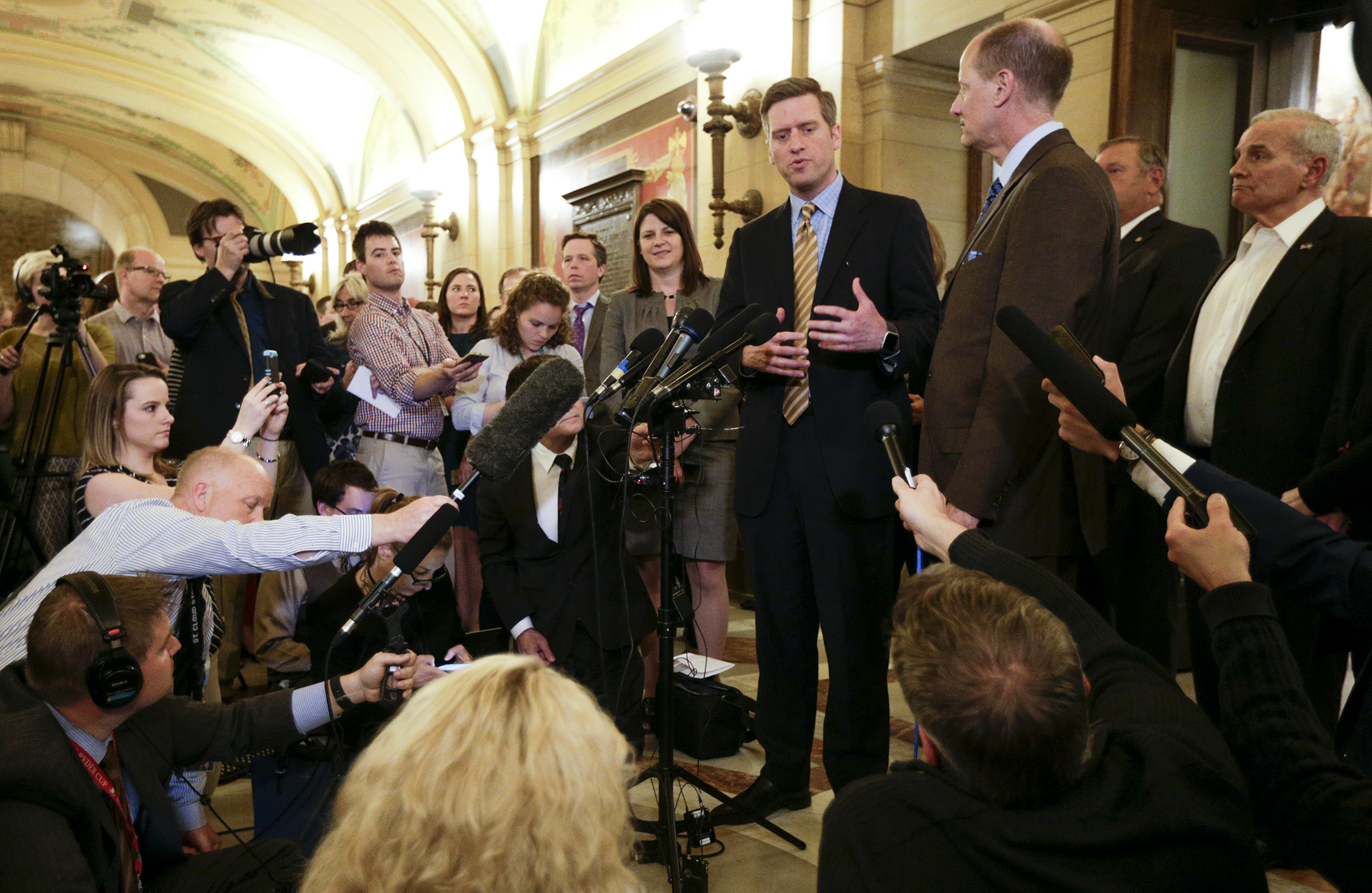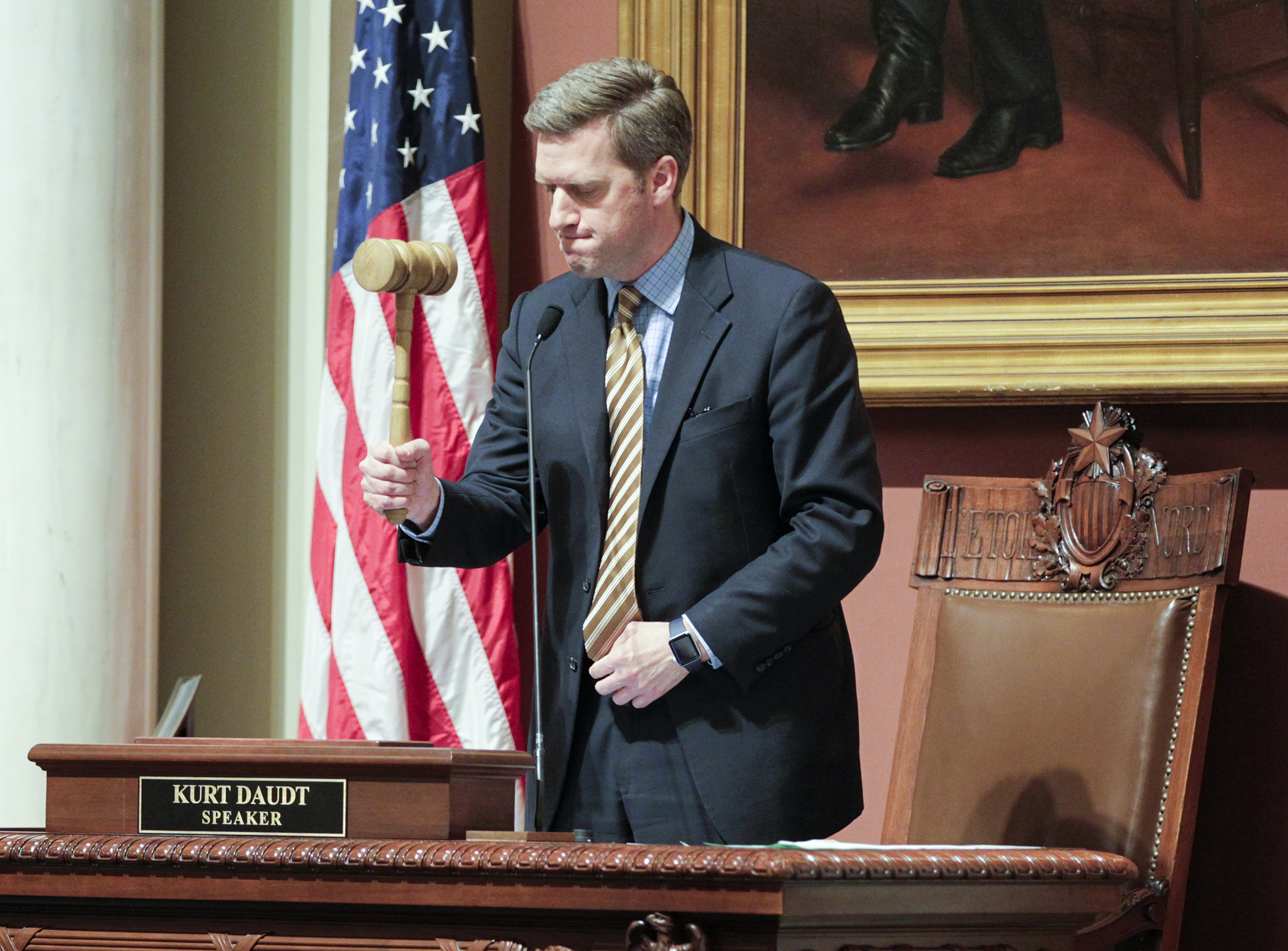Governor, legislative leaders agree on special session to finish work

DFL Gov. Mark Dayton and Republican legislative leaders announced shortly before the curtain closed on the 2017 legislative session that they had reached an overall budget agreement, but it will take a special session to finish the job.
As the Monday midnight deadline approached, it became clear the Legislature wouldn’t be able to wrap up its work in passing a $46 billion spending package. Only five essential budget-related bills passed both the House and Senate, while other core bills – transportation, health and human services, K-12 education and state agency funding – were uncertain. And although passing a tax or bonding bill isn’t required, there wasn’t any public movement on either.
That changed Tuesday at 12:01 a.m., with the governor calling the Legislature into a special session. Leaders said they expect to have everything finished by 7 a.m. Wednesday.
“I think it really represents true compromise,” House Speaker Kurt Daudt (R-Crown) said about the agreement. “We’re getting some things we wanted and the governor’s getting some things he wanted. We’re pretty happy with that.”
The unfinished budget bills’ conference committees are expected to begin posting their reports Tuesday morning, leaders said. The parties agreed to a $660 million tax bill, $300 million transportation bill and an education bill worth more than $450 million, along with a $990 million bonding bill.
 House Speaker Kurt Daudt gavels the 2017 regular legislative session to a close at 11:54 p.m. May 22. Photo by Paul Battaglia
House Speaker Kurt Daudt gavels the 2017 regular legislative session to a close at 11:54 p.m. May 22. Photo by Paul BattagliaDayton said the budget framework is in place but the details are still being worked out.
“It wasn’t easy,” said Senate Majority Leader Paul Gazelka (R-Nisswa). “I think we all knew we had to give up something, which is always what happens, and then get something. In the end, when that happens, Minnesota wins, and tonight I really believe Minnesota won.”
Republican lawmakers, who control both the House and Senate, entered the final three days of the regular session vowing to push ahead with their renewed budget bills without any public agreement from Dayton. The following day, Saturday, was slow under the dome with legislative leaders and the administration negotiating behind closed doors. The $219.8 million omnibus agriculture bill passed, however, capping the night with the first of 10 budget bills finished.
Bills funding higher education systems, clean water, land and accounts under the Legacy amendment, and the omnibus environment bill came next on Sunday.
With the Monday sunrise and the clock careening toward adjournment, both chambers passed the omnibus jobs bill. At 3 p.m., with nine hours left in the session, the House picked up work with the omnibus public safety bill.
Related Articles
Search Session Daily
Advanced Search OptionsPriority Dailies
Legislative leaders set 2026 committee deadlines
By Lisa Kaczke Legislative leaders on Tuesday officially set the timeline for getting bills through the committee process during the upcoming 2026 session.
Here are the three deadlines for...
Legislative leaders on Tuesday officially set the timeline for getting bills through the committee process during the upcoming 2026 session.
Here are the three deadlines for...